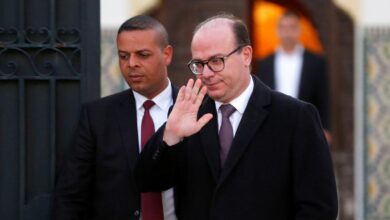World
Sudan: Finance Minister Ibrahim Elbadawi Announces Plan To Lift Fuel Subsidies

Sudan’s Finance Minister Ibrahim Elbadawi on Friday said the transitional government is planning to remove fuel subsidies gradually in 2020 and double public sector salaries as part of the government’s economic and political reforms, reported Sudan Tribune.
The new civilian government was appointed in September after veteran ruler Omar al-Bashir was deposed in April following mass public protests that erupted against shortages of bread, fuel and medicine and soaring prices.
In a press conference on Friday, Elbadawi said the full lifting of the subsidies would be scheduled by a ministerial committee but subsidies on bread and medicine would remain.
“After long discussions, the Council of Ministers has decided to adopt the gradual lifting of the subsidies of the fuel products in order to allocate more revenues for the increase of production and productivity,” he said.
The finance minister said that the government is expected to double civil service pay and raise the minimum wage to 1,000 Sudanese pounds ($22), up from 425 pounds ($9.40).
“This budget is for combating poverty and we announced here that we will double the subsidies of the health and education, also we will support 900,000 families with 1,500 pounds,” Elbadawi said.
He said the budget includes positive changes, citing doubling spending on health and education, free hospital treatment, preventing the imposition of any school fees, providing free school meals to students.
The minister, however, refrained to reveal the total figures of the budget, saying that they are preliminary and subject to modifications. He also didn’t reveal how the budget for next year would be funded or what the government forecast was for revenue and expenditure.
The Sudanese government announced the budget details amid pressure from the International Monetary Fund (IMF) and the World Bank to cut spending and reform subsidies.
Earlier this week, the IMF called on the Sudanese government to implement critical reforms to address major macro imbalances, high inflation and create the conditions for sustained inclusive growth.






